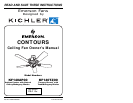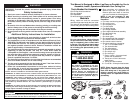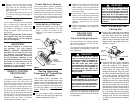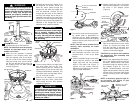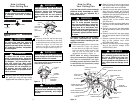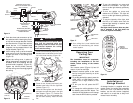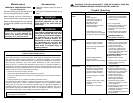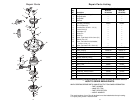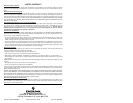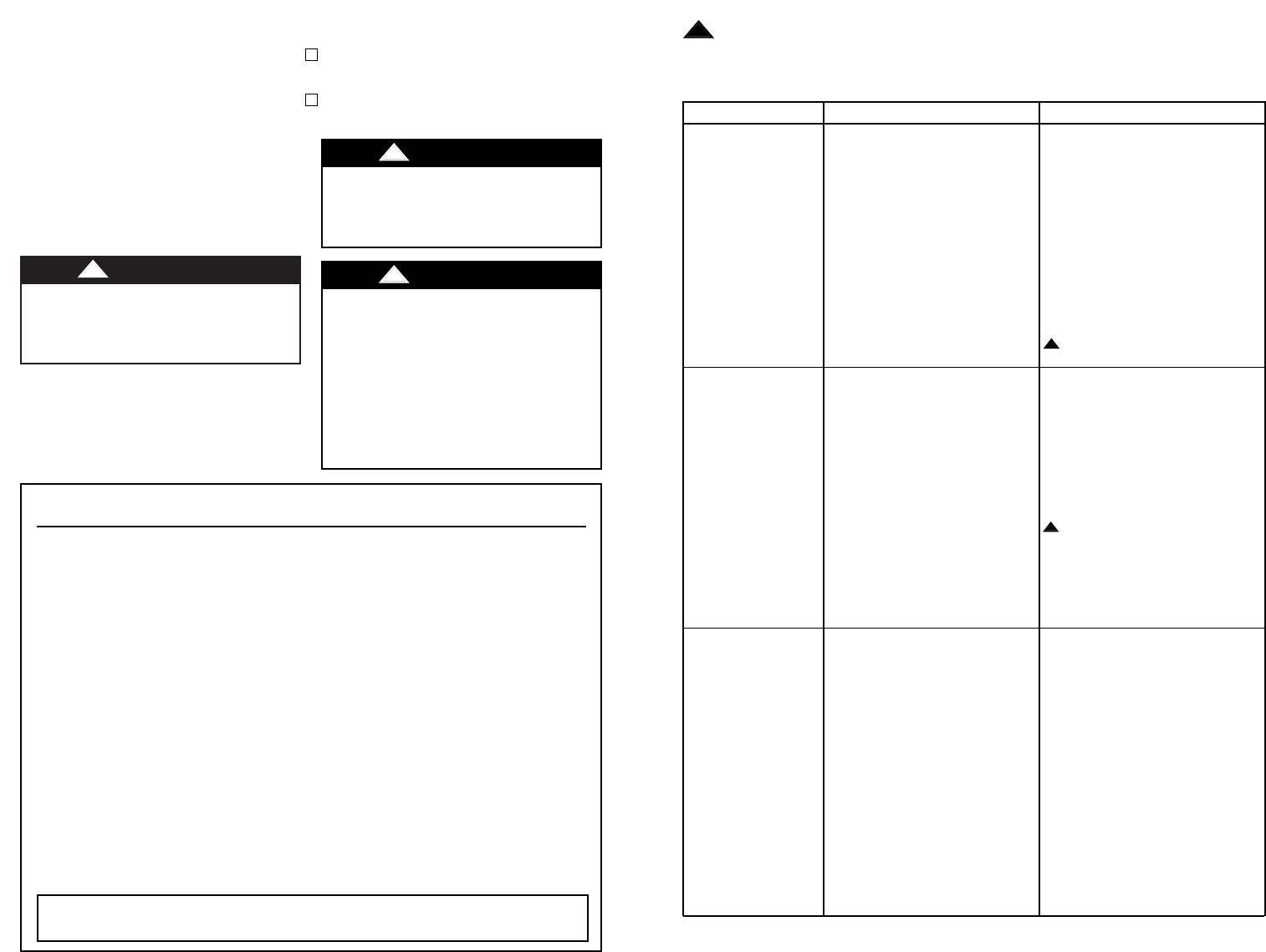
12
13
Do not use water when cleaning your
ceiling fan. It could damage the
motor or the blades and create the
possibility of an electrical shock.
!
WARNING
The use of any other control not
specifically approved for this fan
could result in fire, shock and per-
sonal injury.
!
WARNING
This product is designed to use only
those parts supplied with this prod-
uct and/or any accessories designat-
ed specifically for use with this
product by Emerson Electric Co.
Substitution of parts or accessories
not designated for use with this
product by Emerson Electric Co.
could result in personal injury or
property damage.
!
WARNING
Maintenance
IMPORTANT CARE INSTRUCTIONS
for your Ceiling Fan
Periodic cleaning of your new ceiling fan is
the only maintenance that is needed.
When cleaning, use only a soft brush or
lint free cloth to avoid scratching the finish.
Abrasive cleaning agents are not required
and should be avoided to prevent damage
to finish.
Accessories
1. Downrod Extension Kits (see store or
catalog).
2. Ceiling Fan Controls (see store or cat-
alog).
INSTRUCTION TO THE USER
(if device contains a digital device)
This equipment has been tested and found to comply with the limits for a Class B digital
device, pursuant to part 15 of the FCC Rules. These limits are designed to provide reason-
able protection against harmful interference in a residential installation. This equipment
generates, uses and can radiate radio frequency energy and if not installed and used in accor-
dance with the instructions, may cause harmful interference to radio communications.
However, there is no guarantee that interference will not occur in a particular installation. If
this equipment does cause harmful interference to radio or television reception, which can be
determined by turning the equipment off and on, the user is encouraged to try to correct the
interference by one or more of the following measures:
• Reorient or relocate the receiving antenna.
• Increase the separation between the equipment and receiver.
• Connect the equipment into an outlet on a circuit different from that to which the receiver
is connected.
• Consult the dealer or an experienced radio/TV technician for help.
This equipment has been certified to comply with the limits for a Class B computing device,
pursuant to FCC Rules. In order to maintain compliance with FCC regulations, shielded
cables must be used with this equipment. Operation with non-approved equipment or
unshielded cables is likely to result in interference to radio and TV reception. The user is
cautioned that changes and modifications made to the equipment without the approval of
manufacturer could void the user’s authority to operate this equipment.
This Class B digital apparatus meets all requirements of the Canadian Interference-
Causing Equipment Regulations.
Trouble Shooting
TROUBLE PROBABLE CAUSE SUGGESTED REMEDY
1.Fan will not 1. Fuse or circuit breaker 1. Check main and branch
start. blown. circuit fuses or circuit breakers.
2. Loose power line 2. Check line power connections
connections to the fan, or to fan and wire.
loose wire connections in
the switch housing.
3. Wall switch is off. 3. Turn on wall switch.
4. Defective battery in remote 4. Check that the battery is good
control transmitter. (red indicator light should
illuminate when any button is
pressed).
5. Code switches in remote 5. Check that both code switches
control receiver and transmitter are set in the same positions.
are not set in the same position.
WARNING: Make sure
main power is turned off.
2.Fan sounds 1. Blades not attached to fan. 1. Attach blades to fan before
noisy. operating.
2. Screws securing fan blade 2. Check to make sure the screws
flanges to motor are loose. which attach the blade flanges
to the motor are tight.
3. Wire connectors inside switch 3. Check to make sure wire
housing rattling. connectors in switch housing
are not rattling against each
other or against the interior wall
of the switch housing.
WARNING: Make sure main
power is turned off.
4. Screws holding blades to 4. Tighten screws securely.
flanges are loose.
5. Loose screws in motor housing. 5. Check to make sure all screws
in motor housing are snug
(not over-tight)
3.Fan wobbles 1. Setscrew in motor coupling is 1. Raise coupling cover and tighten
excessively. not tightened securely. setscrew securely.
2. Setscrew in the hanger ball/ 2. Tighten the setscrew in the
downrod assembly is loose. hanger ball/downrod assembly.
3. Screws securing fan blade 3. Check to be sure screws which
flanges to motor are loose. attach the fan blade flanges
to the motor are tight.
4. Fan blade flanges not seated 4. Check to be sure that the
properly. screws securing the fan
blade flanges seat firmly.
5. Hanger bracket and/or ceiling 5. Tighten the hanger bracket
outlet box is not securely screws to the outlet box, and/or
fastened. secure outlet box.
6. Fan blades out of balance. 6. Interchanging an adjacent (side
by-side) blade pair can
redistribute the weight and result
in smoother operation.
Or use supplied balancing kit to
balance blades.
WARNING: FOR YOUR OWN SAFETY TURN OFF POWER AT FUSE BOX
OR CIRCUIT BREAKER BEFORE TROUBLE SHOOTING YOUR FAN.
!
!
!



